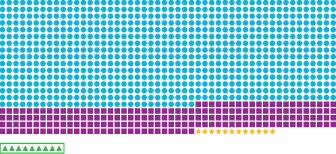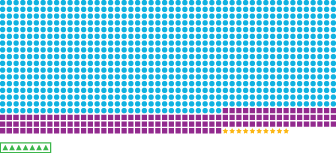Breast Cancer Screening for People Ages 40 to 49: What You Need to Know
In October 2024, the Ontario Breast Screening Program lowered the starting age for screening from age 50 to age 40.This page provides breast cancer screening information specifically for people ages 40 to 49.
For general breast screening information, please go to Screening for Breast Cancer.
What’s on This Page
- Screening Recommendations for People Ages 40 to 49
- Who Can Participate in the Ontario Breast Screening Program
- Deciding if Screening is Right for You
- How to Make a Screening Appointment
Screening Recommendations for People Ages 40 to 49
If you are ages 40 to 49, we encourage you to make an informed decision about whether to get screened for breast cancer. Talk with your family doctor, your nurse practitioner or a Health811 navigator about:
- your personal risk of getting breast cancer
- the potential benefits and potential harms of breast cancer screening
- what matters most to you in taking care of your health
Most people in your age group who decide to get screened for breast cancer should get screened with mammography every 2 years.
Who Can Participate in the Ontario Breast Screening Program
The Ontario Breast Screening Program offers breast cancer screening to women, Two-Spirit people, trans people and nonbinary people ages 40 to 74 who qualify for the program.
People ages 40 to 74 are eligible for screening if they:
- have no breast cancer symptoms
- have no personal history of breast cancer
- have not had a mastectomy (surgery to remove breast tissue)
- have not had a screening mammogram within the last 11 months
- if transfeminine, have used feminizing hormones for at least 5 years in a row
If you are not eligible for the Ontario Breast Screening Program but are interested in breast cancer screening, discuss your options with your family doctor or nurse practitioner.
Screening during pregnancy and lactation
Screening with mammography during pregnancy is safe and effective. If you do not want to get screened while you are pregnant, you can start screening 3 months after giving birth, even if you are still lactating.
Deciding if Screening is Right for You
Making an informed decision about whether to get screened is important for people ages 40 to 49 because generally, people in this age group have a lower chance of getting breast cancer than people ages 50 to 74.
Having a lower chance of getting breast cancer means that the potential benefits and potential harms of screening may be different for you than for people ages 50 to 74.
Talking to your family doctor, your nurse practitioner or a Health811 navigator is an important part of making an informed decision about whether breast cancer screening is right for you.
Ask Yourself These Questions
Here are some questions you can ask yourself to help decide whether to get screened for breast cancer:
- What are the potential benefits and potential harms of screening?
- Which potential benefits and potential harms matter the most to me?
- What advice have I gotten about screening in my 40s?
- How would I feel about waiting to get screened until later instead of starting now?
If you decide not to screen right now, you can change your mind in the future. You can decide to start screening at any time from age 40 to 74 if you are eligible for the Ontario Breast Screening Program.
Learn more about potential benefits and potential harms of screening at Screening for Breast Cancer.
Remember: Contact your family doctor or nurse practitioner if you notice any changes in your breasts (chest), such as a lump or redness that does not go away, or changes to your nipple. Also, the effects of pregnancy or breastfeeding can hide the symptoms of breast cancer or cause them to be overlooked, so it is important to be aware of them. Changes to the breast (chest) are not always caused by cancer, but they should be checked right away.
Understand Your Personal Risk
Breast cancer risk factors are personal characteristics that affect your chance of getting breast cancer. You can learn more about your personal risk factors by completing the My CancerIQ breast cancer risk online questionnaire, which takes about 15 minutes and is available in English and French. The questionnaire asks you questions about your medical history, family history and lifestyle. Once you finish the assessment, you will find out whether your breast cancer risk level is lower than average, average, higher than average, or high compared to an average Ontario resident in your age group. You will also get a personal health action plan with recommendations on breast cancer screening and lifestyle changes that can lower your chance of getting breast cancer.
To understand your breast cancer risk level, complete the My CancerIQ breast cancer risk questionnaire.
Some risk factors for breast cancer cannot be changed, like age, genetics or family history. For example, the chance of getting breast cancer goes up as you get older so people ages 40 to 49 generally have a lower chance of getting breast cancer than people ages 50 and older.
Some research shows that the chances of getting breast cancer or dying from breast cancer can vary for people of different races and ethnicities. Data from Canadian populations shows that non-White females (see note 1) are diagnosed with and die from breast cancer at a younger age than White females (see note 1). However, there is not enough research to make specific breast cancer screening recommendations for people of different races and ethnicities. Understanding the complete picture of your individual breast cancer risk is an important part of informed decision-making. For more information on the effect of race and ethnicity in breast cancer screening please see our webpage on Race, Ethnicity and Indigeneity in Breast Cancer.
Note 1: The use of binary gendered language and white vs non-white categorization reflects how this data was reported by the source.
How starting screening at age 40 compares with starting at age 50
The lifetime effects of participating in regular breast cancer screening every 2 years may be different depending on whether people start screening at age 40 or age 50.
If 1,000 women start screening at age 40
(Each shape represents one person)
- 779 people will not experience any serious harms from breast cancer screening
- Up to 200 unnecessary biopsies will occur over their lifetimes
- 12 cases of overdiagnosis will occur over their lifetimes
- Up to 9 deaths from breast cancer will be avoided over their lifetimes

If 1,000 women start screening at age 50
(Each shape represents one person)
- 833 people will not experience any harms from breast cancer screening
- Up to 150 unnecessary biopsies will occur over their lifetimes
- 10 cases of overdiagnosis will occur over their lifetimes
- Up to 7 deaths from breast cancer will be avoided over their lifetimes

The infographic (see note 2) shows estimated data based on modelling that tries to predict the results of participating in regular breast cancer screening. It predicts outcomes for two groups of 1,000 women. One group starts screening regularly at age 40 and the other group starts at age 50.
The group that starts screening at age 40 has fewer deaths, but also has more false-positive results, more unneeded biopsies and more over-diagnosis. The group that starts screening at age 50 is likely to experience fewer harms from breast cancer screening.
You can talk to your family doctor, nurse practitioner or a Health811 navigator about this information to help you make an informed decision about breast cancer screening.
Note 2: The numbers in this graphic are taken from a model of breast cancer screening programs in the United States. These results may not apply to Canadian populations due to the differences between our health care systems.
How to Make a Screening Appointment
If you decide that breast cancer screening is right for you, you can make an appointment for a mammogram. You do not need a referral, or order, from your doctor or nurse practitioner to get screened.
To find locations, accessibility information, hours of operation, wait times and contact information, visit Ontario Health – Wait Times
Call an Ontario Breast Screening Program location directly or call our Appointment Booking Line at 1-800-668-9304.
If you live in the North West or Hamilton Niagara Haldimand Brant regions, you may be eligible for screening at one of our mobile screening coaches.
If you are making a mammogram appointment at an Ontario Breast Screening Program (OBSP) location you have not been to before, the location will need your past mammogram records, if you have any. You may be asked for consent (your permission) to transfer your mammogram records from the old location to the new location. To transfer your records, you will need to know the name and address of the location where you had your last mammogram. You may also sometimes be asked to bring your past mammogram records or send them in advance.
If you have been asked to bring your past mammogram records or send them in advance, call the location where you had your last mammogram and let them know you need a copy of your past mammogram records.
One of the signs of breast cancer is changes to the breast tissue, so the radiologist (the person reading your mammogram) needs to be able to compare your new mammogram to your old mammogram to see any breast tissue changes.
If you were screened for breast cancer before October 8, 2024, and want to become part of the Ontario Breast Screening Program, you will need to make an appointment at one of our locations when you are due for your next mammogram.
